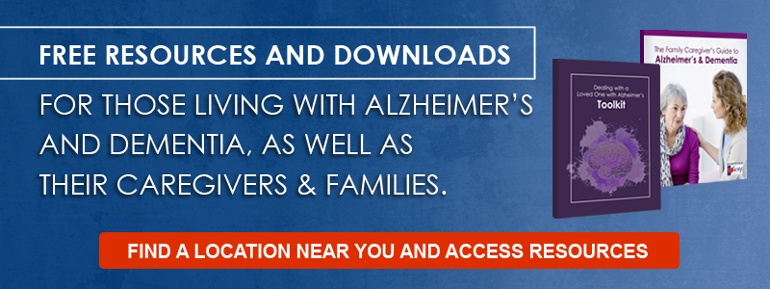Reminiscing can have many positive effects on an aging adult. According to the American Psychological Association, therapy using reminiscence is “the use of life histories – written, oral or both – to improve psychological well-being.”
This therapy relies on helping individuals remember past experiences through sight, sound, taste, touch, or smell. It can include various activities like looking at pictures, singing a song, or talking about an event. These memories can help seniors with Alzheimer's or dementia boost their mood and reduce agitation.
Here are some additional reasons why reminiscing with a senior client is a beneficial tool to use as a caregiver.
Benefits of Reminiscing
1. Preserves Family History
Often, family members know close to nothing about the lives of their elderly loved ones. People tend to forget that the seniors in their families used to live young, full lives. Seniors who recount past experiences can pass on valuable memories for future generations.
Plus, reminiscing about days gone by can bring families closer together. Many family members have shared memories from their family history.
2. Helps Improve Their Quality of Life
Seniors who reminisce may also show improved outlooks on life. After remembering happy memories, seniors are often brighter and smile more. Engaging in animated conversation with others helps seniors maintain balance in their lives.
3. Reduces Symptoms of Depression
Reminiscence therapy is often used for patients with dementia and depression. According to the LA Times, those who reflect on their lives "find greater satisfaction in their old age." When seniors are busy sharing their accomplishments, it distracts them from worrying about their medical conditions. Plus, it increases their self-esteem.
4. Promotes Physical Health
Something as simple as recalling past experiences can also improve one's body. According to the book, "I Remember When: Activity to Help People Reminisce" by Howard Thorsheim and Bruce Roberts, seniors who reminisced showed lowered blood pressure and heart rates.
5. Works Through Unresolved Conflicts
Looking back on old conflicts in their lives can help seniors find closure. After reviewing past experiences with a more mature understanding, many people can move forward to live in a more healthy present.
6. Eliminates Boredom
Talking about the past can offer relief, especially for seniors who are less mobile or live in a nursing home. It can also take them out of their current situation and help them relive more active days.
Memories can provide laughter and entertainment for seniors, their family members, and caregivers. Prompting senior reminiscing can be done one-on-one or in group therapy sessions. Since "laughter is the best medicine," generating happy memories can make every day lighter for everyone that joins in.
7. Improves Communication Skills
As your loved one shares their past, it increases their ability to communicate. When they talk about their past, their memory ignites and emotion is likely involved, too. Research shows that as seniors remember the past, new pathways form in the brain that helps with communication. Also, it gives them an opportunity to practice communicating in a way that is meaningful to them.
8. Reduces Stress
When seniors share their past with someone, it can reduce their stress levels. One reason is that it allows them to resolve issues from their past they may have not dealt with before. Another reason is that it allows seniors to deal with negative emotions they may not know how to deal with otherwise. For example, your grandmother may not know how to talk about how much she misses your grandpa, but she may be able to share these emotions indirectly through stories.
9. Enhances Self-Esteem
Aging is a process that can be quite challenging for many. Reminiscing helps your loved ones cope with growing older as they recreate their life’s meaning by being connected to the past. It also helps reaffirm their feelings of being important. Plus, sharing the past helps seniors reflect on their achievements and appreciate what they have done.
Reminiscing also helps seniors feel heard, which increases self-esteem. For reminiscence therapy to work, someone has to be there to listen to them. Not just to hear them talk, but to actively pay attention to the memories they're sharing. This can help seniors feel connected, and it can make them more eager to share their experiences knowing there is someone there who is paying close attention.
How to Help Seniors Reminisce
Seniors may need a little help getting started on sharing their stories and reliving good memories. Here are some ways to help!
1. Flip through old photographs and albums
Seeing familiar places and faces will prompt memories and stories that you may have never heard. It may elicit a great conversation with your senior. Try flipping through a high school yearbook or look at photographs from a family vacation.
2. Reference their favorite movies
Does your senior remember a movie that made an impact on them in their youth? Find out their favorite childhood film or the first movie they saw in a theater. Watch it with them as they reminisce about their experience.
3. Relive holiday traditions
Ask your seniors what they remember the most about the holidays of the past. Was it a favorite ornament or baking cookies with their mother? Help your senior relive some of those special moments by recreating some of their specific memories this year.
4. Play music that is special to them
Hearing songs that made an impact on them will bring back positive memories. Try playing a wedding song or a tune that was a chart-topping hit during their youth. Music has the power to awaken those with Alzheimer's or dementia.
5. Use objects to reminisce
Take a few items that were present in their home and ask about the story behind the object. How and when did they get it? Why did they have it? What made it special to them?
We hope that these tips can help caregivers connect with their aging loved ones through reminiscence therapy. However, you may also want to consider professional reminiscence therapy for your senior.


